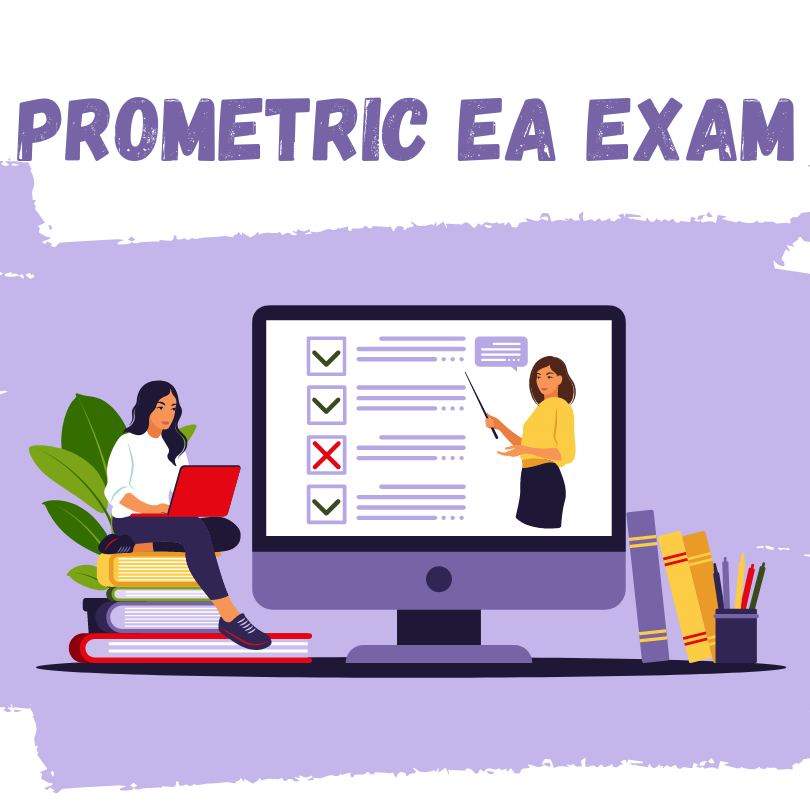Become an Enrolled Agent: Step-by-Step Guide
Passing the Enrolled Agent (EA) exam opens the door to...

Acing the Enrolled Agent exam can spark a whirlwind of anxiety, but what does it actually take to triumph over this challenge?
Essential knowledge of tax regulations paired with studious preparation can lead to success; however, what score must one achieve to join the ranks of esteemed Enrolled Agents?
The Enrolled Agent (EA) exam, officially known as the Special Enrollment Examination (SEE), is segmented into three parts, each covering different realms of tax-related expertise. These parts include Individuals, Businesses, and Representation, Practices and Procedures. Candidates have the flexibility to take these sections in any order, but must pass all three to earn the esteemed EA designation.
Each section of the EA exam is comprised of 100 multiple-choice questions that must be completed within a 3.5-hour timeframe. The scoring for the exam is not based on a curve but is determined using a scaled scoring system where the passing score is set at 105 out of a possible 150.
The EA exam is divided into three distinct parts—Individuals, Businesses, and Representation, Practices and Procedures.
Efficient time management during the exam ensures coverage of all questions without compromising accuracy.
Each part of the exam is allotted 3.5 hours.
Focused preparation, including timed practice sessions, is indispensable to navigate through each exam section within the allocated timeframe.
The Enrolled Agent Exam consists solely of multiple-choice questions (MCQs). Candidates will encounter MCQs with four answer options that assess their tax knowledge comprehensively. The exam does not include true or false propositions, direct question and answer formats, or scenario-based questions. It is important for candidates to have a well-rounded command of tax law and its practical implications to succeed on the exam. For more information about the Enrolled Agent Exam, you can visit this link.
The Enrolled Agent Exam employs a scaled scoring system, where the raw scores are converted to a scale that ranges from 40 to 150. This adjustment is meant to ensure consistency in scoring, accommodating for variations in exam difficulty over different administrations. Candidates must achieve a scaled score of 105, which corresponds to the minimum passing standard set by the IRS.
This scaling process employs a statistical adjustment known as equating. Equating takes into account the difficulty of specific questions, ensuring that a score reflects a candidate’s performance level consistently across varying exam forms. As such, the number of correct answers needed to pass can fluctuate depending on the complexity of the test version administered.
The scoring scale for the Enrolled Agent Exam is calibrated to a minimum pass mark, established by the IRS. A scaled score of 105 out of a possible 150 is required to pass each part of the three-part exam.
This standardization process adjusts raw scores to account for differences in exam difficulty. The scaled scoring ensures equitable treatment of all candidates, irrespective of the specific exam form’s complexity. Therefore, a score of 105 does not necessarily correspond to a fixed percentage of correct answers. But, it’s fairly safe to assume that you need a 73% or higher to pass.
Modified equating, a statistical process, is implemented to normalize scores across different exam versions. This ensures that the scaled score accurately represents a candidate’s ability, irrespective of the test difficulty they encountered. This approach upholds the integrity of the Enrolled Agent certification.
Regular analysis and revisions are part of supervising the scoring system’s efficacy. The IRS periodically reviews and adjusts the scaling and equating methodologies to maintain reliability in the assessment of candidates’ proficiency.
In the event of scoring anomalies or disputes, an extensive review mechanism is available. This process is designed to protect candidates’ interests and upholds the fairness of the grading scale employed for the Enrolled Agent Exam.
To secure the prestigious Enrolled Agent (EA) designation, candidates are required to navigate the EA exam’s meticulous scoring model—a scaled score system wherein 105 is the minimum threshold for success. With scores ranging from 40 to 150, it is imperative to focus on understanding, rather than rote memorization, ensuring a score that transcends this baseline. The scaled score accounts not just for the number of questions answered correctly, but also the difficulty level of those questions, demanding a comprehensive mastery of tax laws and regulations to demonstrate proficiency.
The Enrolled Agent exam mandates a scaled minimum score of 105 to pass. While the maximum attainable score is 150, passing hinges on surpassing the stipulated minimum, entrenched in a complex scoring algorithm that weighs both accuracy and question difficulty. This scoring system assures a consistent standard of competency among successful test-takers.
To reach the necessary 105-point threshold, strategic study is essential. Mastery over the vast expanse of tax code and regulations brings candidates closer to obtaining this score and achieving the EA designation.
Keep in mind, achieving a score above the minimum is advisable. A margin above 105 (indicating stronger competency and comprehension) enhances the likelihood of passing, given the uncertainties of scaled scoring.
Scores reflecting just the minimum may not translate to strong practical understanding. Enhancing your breadth and depth of knowledge increases your scoring potential, effectively safeguarding against the unpredictabilities of the adaptive testing format.
Candidates who invest substantial effort into their preparation are more likely to score well above the minimum required score. A dedicated study plan that emphasizes deep comprehension over simple memorization proves indispensable in this regard, engendering the acquisition of substantive expertise to seamlessly navigate through the exam’s complexities.
Consequently, the goal is to substantially exceed the exam’s score requirement. Beyond achieving the license, this preparation ensures readiness to encounter real-world tax scenarios, embodying the true essence of an Enrolled Agent’s expertise.

Once you have successfully passed a part of the EA exam, the countdown begins on the score’s validity.
Should you fail to pass all parts within the three-year period, the scores for the sections passed first will expire.
It’s crucial to plan your exam schedule meticulously to ensure you complete all sections within the allocated time.
Diligent study habits coupled with a strategic approach to the exam content will set the foundation for success. This includes comprehensive understanding of tax law updates, meticulous practice with sample questions, and mock exams to gauge preparedness. Time management skills are critical during preparation, as they are during the exam.
In addition, enlisting in a reputable EA review course can be invaluable, providing structured learning materials and guidance from experienced instructors. Stay engaged with professional forums and groups that focus on the EA exam to remain abreast of insights and tips from peers who are also on the journey to becoming Enrolled Agents.
Selecting the right study resources is pivotal for your success on the EA exam.
Incorporating a variety of tools will cater to different learning styles and needs.
An organized approach to utilizing these tools is crucial for efficient study progress.
Effective time management is the backbone of successful exam preparation, ensuring you cover all topics thoroughly while avoiding burnout. Strategically plan your study sessions, scheduling consistent, undistracted time blocks tailored to your personal peak productivity periods. This preparation method will set a foundation for comprehensive understanding and retention of the materials necessary for the EA exam.
Recognize the value of short, focused study sessions. Continuous hours of study without breaks can lead to diminished returns in information retention and understanding. Instead, employ intervals (traditionally known as Pomodoro technique), which intersperse study periods with short breaks, to enhance concentration and assimilation of information.
Prioritize topics based on their weight in the EA exam. Focus substantial time on areas that contribute most significantly to your score, leveraging practice exams to identify strengths and weaknesses. This approach ensures an efficient allocation of time, optimizing study sessions to fortify areas requiring additional attention and mastery.
Build in review sessions to reinforce learning. Regular recapitulation aids in transferring knowledge from short-term to long-term memory, securing the concepts in your comprehension. Allocating time for review sessions within your study schedule prevents the need for last-minute cramming, and ultimately supports a better command of the materials.
Employ time-saving techniques such as mnemonic devices to aid in memorizing complex concepts and rules. These methods are invaluable when confronted with the extensive provisions of tax law and regulations present on the EA exam. Your ability to quickly recall information during the test can often be the difference between a passing and failing score.
Finally, respect your body’s need for rest and regeneration. Proper sleep enhances cognitive function and memory consolidation, both critical during preparation and on the exam day itself. Ensure a balanced approach to studying that includes adequate rest to maintain focus, productivity, and ultimately your well-being throughout the exam process.
Approximately 73% is passing. However, there are 15 experimental questions that won’t affect your score. You need 62-63 questions right out of 85, but since you don’t know which questions are experimental… shoot for 73/100.
To pass the EA exam, you need to answer a specific number of questions correctly. The exact number of questions needed to pass may vary depending on the specific exam and the scoring criteria in place. However, it is important to note that the EA exam is not solely based on a pass/fail outcome. Instead, it utilizes a scaled scoring system to determine a candidate’s proficiency in the subject matter.
The scaled scoring system used in the EA exam ensures that each candidate is evaluated based on the difficulty of the questions they answer correctly. This means that candidates who answer more difficult questions correctly will receive higher scores, while those who answer easier questions correctly will receive lower scores. The number of questions answered correctly is only one factor in determining a candidate’s overall score.
It is important for EA exam candidates to focus on understanding and mastering the subject matter, rather than solely aiming for a specific number of correct answers. By thoroughly studying the exam content and practicing exam-style questions, candidates can improve their knowledge and increase their chances of achieving a passing score on the EA exam.
The pass rate for the Enrolled Agent (EA) exam varies depending on the specific part being tested.
On average, the pass rate for Part 1, which focuses on individual tax returns, is around 80%. This part covers topics such as income, deductions, credits, and tax calculations.
For Part 2, which focuses on business tax returns, the pass rate is usually slightly lower, typically around 70%. This part covers topics such as partnerships, corporations, estates, and trusts.
Finally, for Part 3, which covers representation, practice, and procedure, the pass rate is generally higher, averaging around 90%. This part focuses on topics such as IRS procedures, ethics, and professional conduct.
It’s important to note that these pass rates are approximate and can vary from year to year. Additionally, individual study habits, preparation, and prior knowledge can also play a significant role in an individual’s success on the exam.
The full score of the EA exam is not explicitly stated. However, it is important to understand the scoring system and how candidates are evaluated.
The EA exam is divided into three parts: Part 1, Part 2, and Part 3. Each part consists of multiple-choice questions, and candidates are awarded points for each correct answer. The number of questions and the point value of each question may vary from one part to another.
To pass the EA exam, candidates must achieve a minimum passing score on each part. The passing score is determined by the Internal Revenue Service (IRS) and may be adjusted periodically. Although the passing score may change, it is generally set at around 70% or higher.
It is worth noting that the EA exam is not a graded exam. This means that candidates do not receive their exact scores or a breakdown of their performance. Instead, they receive a pass or fail result for each part of the exam.
In summary, while the full score of the EA exam is not explicitly disclosed, candidates must aim to meet the minimum passing score on each part to successfully earn their Enrolled Agent credential.

Passing the Enrolled Agent (EA) exam opens the door to...

The journey to becoming an Enrolled Agent is both challenging...

Imagine gazing at a promising future as a tax professional.However,...

Achieving the status of an Enrolled Agent is a significant...

Are you envisioning a successful career as an Enrolled Agent?It's...